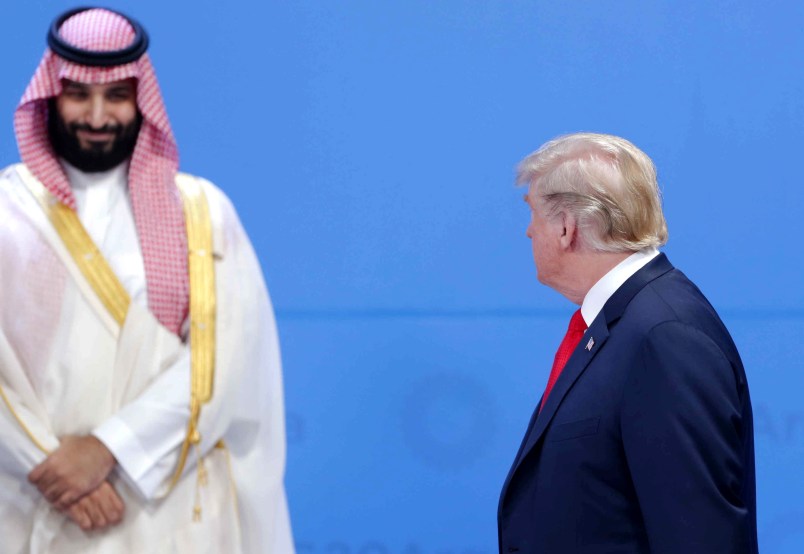The Trump administration approved the transfer of nuclear expertise to Saudi Arabia just two weeks after Washington Post journalist Jamal Khashoggi was murdered in the Saudi consulate in Istanbul, Sen. Tim Kaine (D-VA) revealed Tuesday.
Kaine, a member of the Senate Foreign Relations Committee, said in a statement that the administration’s first nuclear technical expertise transfer approval occurred on Dec. 13, 2017, one of seven such approvals. Notably, two occurred after Khashoggi’s death: One on October 18, 2018, “16 days after Khashoggi’s murder,” Kaine noted, and another on Feb. 18, 2019.
Kaine’s office said that he’d “repeatedly” asked the Department of Energy for information on the administration’s apporovals of nuclear expertise transfers to Saudi Arabia, but that the department only responded after “an explicit directive” from Committee Chairman James Risch (R-ID).
“I have serious questions about whether any decisions on nuclear transfers were made based on the Trump family’s financial ties rather than the interests of the American people,” Kaine said in his statement, adding that the nuclear expertise transfers approved after Khashogghi’s murder “add[] to a disturbing pattern of behavior”:
“that includes citing a bogus emergency to bypass a Congressional block on arms sales to the Saudis, continuing support for the disastrous war in Yemen over Congressional objections, turning a blind eye to the regime’s detention of women’s rights activists, and refusing to comply with the Global Magnitsky Act to reach a determination about the Saudi government’s responsibility for the murder of Jamal Khashoggi.”
Khashoggi’s death was the catalyst for a sea change in Congress regarding relations with Saudi Arabia. In March this year, President Donald Trump issued his second veto after both congressional chambers passed a measure to end American involvement in the Saudi-led war in Yemen.
In February, the Trump administration refused to meet a deadline put forth by a bipartisan group of senators under the Global Magnitsky Act. The deadline required the administration to determine whether the administration believed Saudi Crown Prince Mohammad bin Salman was involved with Khashoggi’s murder.
Last month, citing the “fundamental threat” posed by Iranian “malign activity,” Secretary of State Mike Pompeo informed Congress that the administration was bypassing congressional review for billions in arms sales to Saudi Arabia.
By Oct. 18 last year, when Kaine says the first transfer of nuclear expertise to the Saudi government after Khashogghi’s death was approved, the administration had pledged to get to the bottom of Khashogghi’s then-suspected murder at the consulate.
“We cannot let this happen, to reporters, to anybody,” Trump said told reporters the Oval Office on Oct. 10, adding: “We’re going to get to the bottom of it.” He said the next day that ending arms sales to the kingdom “would be hurting us.”
Reports quickly emerged following Khashogghi’s death that U.S. intelligence agencies suspected a plot against Khashogghi originating with the Saudi crown prince. Secretary of State Mike Pompeo met with the Saudi crown prince on Oct. 16, two days before the transfer approval revealed by Kaine Tuesday.



